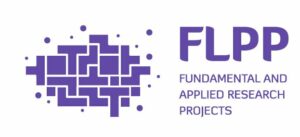
Project Title: Gut microbiota composition in relation to extrinsic factors and health status in infants and toddlers: prospective analysis of faecal microbiota composition by meategenomic sequencing in children up to 36 months of age
Project No: lzp-2021/1-0275
Period: 1 January 2022 – 31 December 2024
Project costs: 299999,70 EUR
Principle Investigator: University of Latvia
Principle Investigator: Dr.biol. Dāvids Fridmanis
Summary
Gut microbiota has an important role in maintaining human health. Although gut is colonised mainly at birth, microbiota develops throughout the first years of life and it is still questioned when microbiota becomes stable. Composition of microbiota is influenced by several factors (diet, environmental factors, treatment), while interaction of the factors in certain individuals as well as identification of other factors is still in process. It has been shown that FM differs in individuals with health disturbances (allergy; functional gastrointestinal disorders (FGID)). However, specific changes of microbiota associated with the development of a disease have not been established, therefore prospective analysis of FM is important. Development of sequencing methods gives possibility to study microbiota analysing faecal microbiota (FM). Metagenomics allow even deeper analysis of FM. We aim to analyse dynamics of FM composition in children till 36 months of age and the relationship with different extrinsic factors and development of diseases. The objectives are to analyse: FM of children at 0-6, 6-12 and 12-36 months of age (metagenomics); presence of lifestyle, diet, environmental factors and health status (questionnaire) in relation to composition of FM; FM changes after antibacterial therapy. Characteristics of FM will be analysed in different age periods and compared in individuals with presence of different factors, as well as in children with/without allergy and FGID.
Information published 03.01.2022.

